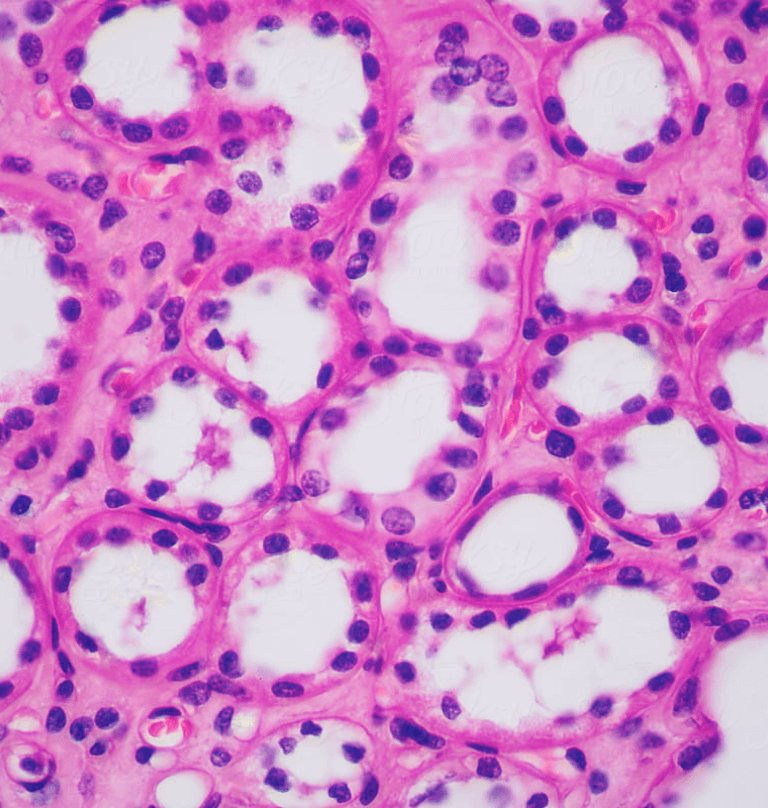What's New
The Evolving Role of Genetics in Cardiovascular Medicine

The Evolving Role of Genetics in Cardiovascular Medicine
Are Cardiovascular Diseases Genetic? What Is Cardiogenetics?
With the prevalence of heart disease and the serious health risks associated with it, many people often wonder, is cardiovascular disease genetic?
While some cardiovascular conditions may not have as significant a genetic component to them, some — such as diseases of the heart muscle, life-threatening heart rhythms, and high cholesterol levels — can be passed down from parent to child through inherited genetic mutations [1].
Cardiogenetics examines the genetic causes of inherited cardiovascular disease, including the analysis of genetic variants that impact the heart's function. This important area of study and care supports disease management, and assists with risk assessment of relatives [2].
How Genetic Testing Is Impacting Cardiovascular Care
By understanding the genetic links that contribute to these cardiovascular conditions, researchers and healthcare providers can develop more targeted treatments, which can be personalized to an individual's genetic makeup [2].
Early detection is essential in the treatment of heart disease. If there is a genetic aspect of your condition, you may be referred to a genetic counselor. Genetic testing is a key tool that could also be used, and could be recommended for family members so that they can receive timely preventative care [3].
Cardiovascular genetic testing can play an important role in the assessment (and subsequent treatment) of specific heart diseases, catalyze preventative care in family members with genetic risk, and could eventually allow for the development of new targeted treatments.
Is Genetic Testing Commonplace When Seeking Medication for Cardiovascular Issues?
Genetic testing can help you and your healthcare team understand if an existing heart condition has a genetic cause, or if you are predisposed to certain inherited cardiovascular diseases affecting a family member — such as cardiomyopathy, arrhythmias, and familial hypercholesterolemia [4]. While genetic testing could play a greater role in the future, a specific type (pharmacogenetic testing, or PGx) is being increasingly used to guide medication choices and reduce the risk of adverse drug reactions in cardiovascular care.
PGx testing provides personalized guidance regarding the safety, effectiveness and dosing of many key medications used when receiving cardiovascular care. For example, About 1/3 of people are unlikely to adequately respond to the use of clopidogrel – a number that goes up to 90%+ for one ethnic group – which increases the risk of another heart attack or stroke [5]. Additionally, as few as 25% of older adults continue taking their statins as prescribed [6], often due to side effects like muscle pain. Those that regularly miss doses of their statin prescription have about 30% greater odds of a major cardiovascular event (e.g., heart attack, stroke, heart failure). Those that stop their statin altogether have about 50% greater odds of a heart attack [7].
Inagene's Cardiovascular Health test sheds light on how your body is likely to respond to over 45 important medications, reducing the risk of side effects that impact sustainable treatment and providing personalized insight on more personalized medication decisions.
The Rise of Genomic Screening in Cardiovascular Risk Assessment
If you have an existing cardiovascular condition, genetic testing can be a powerful tool to identify relatives who have an increased risk of developing heart disease — even before symptoms appear. Genetic testing for inherited heart conditions examines your genes via a blood sample to look for any pathogenic (or disease-causing) variants. Below is a list of possible results, and what they may mean for your family members [5]:
Positive result (pathogenic variant): A positive result means the test found a genetic cause for your heart condition. Biological family members will then have the option to get genetic testing, and those that test positive will require ongoing screening. Genetic counsellors are often involved to provide guidance on the screening process.
Negative or uninformative result (no variant detected): A negative result means the test did not find a genetic cause for your heart condition. Ongoing heart screening may be suggested for your relatives as a comprehensive precaution.
Uncertain result (variant of uncertain significance): An uncertain result means that a genetic difference was found that is not well understood, and may require additional steps for better understanding.
Complex result: A complex result may mean that the test found more than 1 genetic difference, or that a syndrome (a collection of health concerns due to the same underlying cause) may have been identified. Complex results are rare and usually require more testing or referral to a specialist [8].
What Genetic Insights Mean for Future Treatments
Identifying genetic variants that may indicate your risk of inheriting a cardiovascular condition can allow you to make informed health decisions, such as lifestyle changes and preventive treatments. Environmental factors that can be modified include diet, exercise, and limiting tobacco use. Preventative treatment often entails starting screenings earlier than the recommended age, or increasing your screening frequency [3].
Understanding an individual’s genetic profile opens the door to more personalized treatments, including precision medicine methods like PGx testing. While cardiovascular genetic testing is ever-evolving, the field of cardiogenetics is continually demonstrating its positive impacts in improving care.
This website has been developed by Inagene Diagnostics Inc for information purposes only. It does not provide medical advice, diagnosis, treatment or care. If you have a health problem, medical emergency, or a general health question, you should contact a physician or other qualified health care provider for consultation, diagnosis and/or treatment. Under no circumstances should you attempt self-diagnosis or treatment based on anything you have seen or read on this website. For more information about how to use this site, please see our Terms of Service.
References
